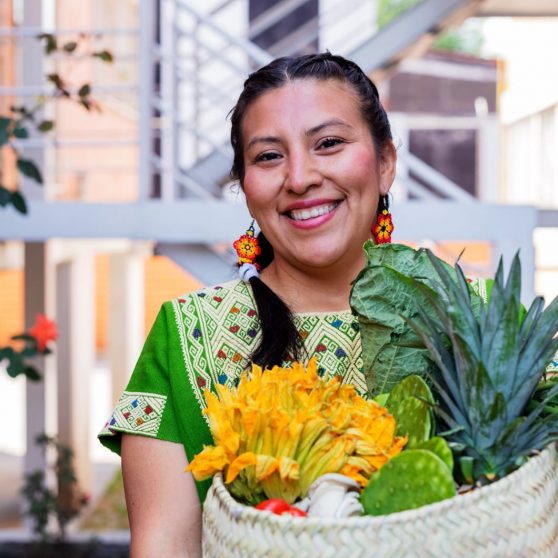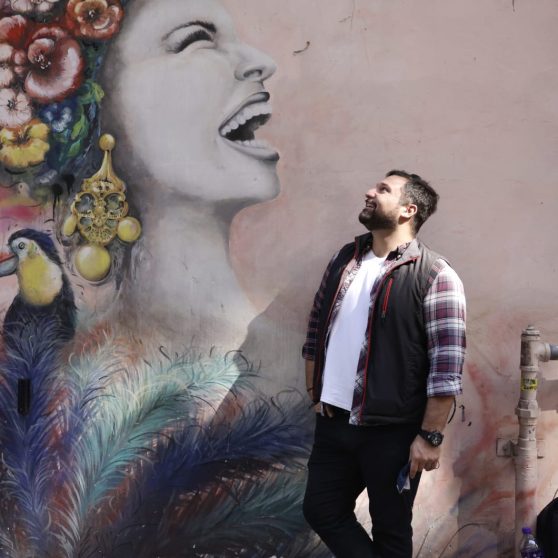Seated cross-legged at the front of a low-laying colourfully painted wooden boat, I am watching the water ripple gently away from the bow as we enter into a green tunnel of overhanging trees. It’s peaceful. There are no sounds of motors here. Our host Don Nicho stands at the rear with a long wooden pole and pushes us gently along the channels of the chinampas, affectionately known as the floating gardens of Mexico City.
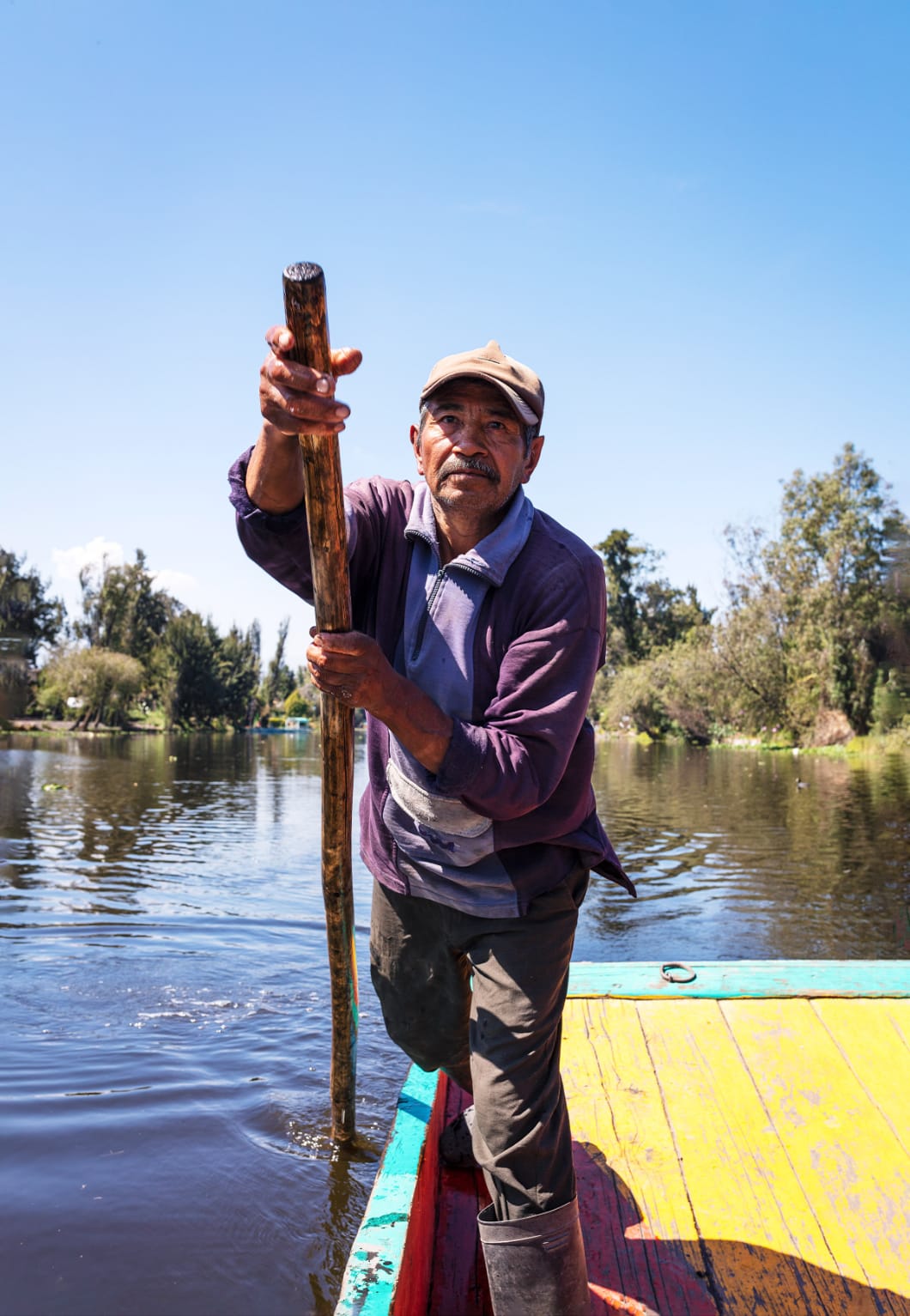
Built by the Aztecs more than 1000 years ago, the chinampas are a type of Mesoamerican agriculture system where crops are grown on islands created by interweaving reeds on shallow lakes. Over time a buildup of soil and vegetation from these manmade islands produces fertile soil used for growing crops.
Behind me, I can hear our guides providing translation to our crew as Don Nicho speaks about life in the chinampas which are located in the borough of Xochimilco in southern Mexico City. Although beautiful, these waters have become heavily polluted and many of the local Indigenous community members have moved away from farming to run party boats where locals and visitors alike come for day-trips to float leisurely while drinking and listening to live music. The environmental and economic changes have meant that the areas traditional farming practices have been largely abandoned.
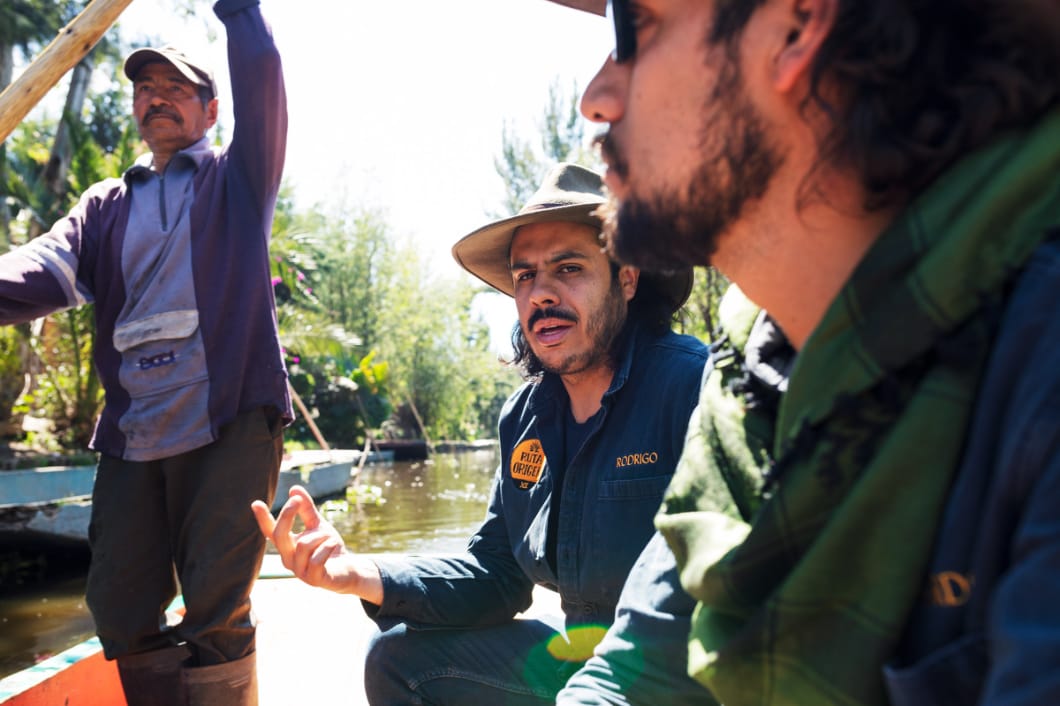
Modern-day farming practices have led to the use of pesticides, insecticides, fertilizers and ultimately an erosion of soil quality and water pollution. The increase of tourism in parallel has introduced garbage into the waters and persuaded many locals to abandon farming in favor of quick money for hosting party-goers.
Don Nicho has watched his community and the environment around him become eroded and succumb to the effects of Mexico City’s burgeoning urban sprawl. But rather than accepting the current conditions, he has organized members of his community to revitalize Aztec farming practices that not only have positive effects on the environment but will hopefully lead to new economic opportunities. It’s here at the intersection of environment and economics that Don Nicho began working with Ruta Origen.
Founded by Gerardo Ibarra and Rodrigo Trujillo, this duo combined their passion for social enterprise and love for food, coffee and mezcal, to create Ruta Origen. Their business framework is designed to bridge community development through sustainable tourism experiences that generate alternative sources of income for base producers and allies in the countryside and city.
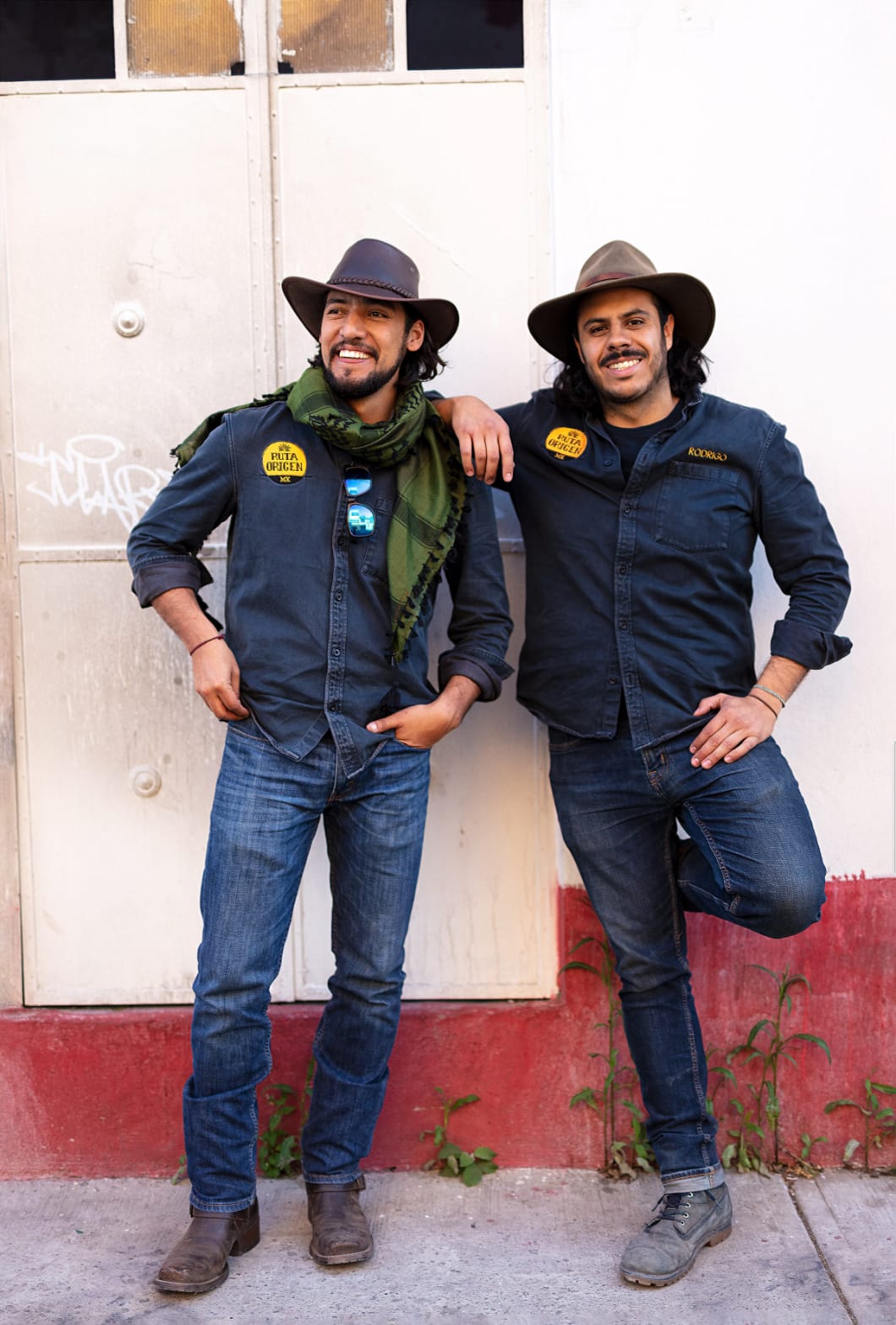
“I think Mexicans are really proud of our traditions and our culture,” says Gerardo. “And sometimes it’s really hard to connect with each other.”
“The Indigenous communities and people that are living in the countryside feel pushed away from all the development and all the culture that is happening in the city. So we have these separations, — we don’t feel connected and we are not able to communicate because we are living in a different world. That’s why I think tourism and travel is a real, real powerful way to connect different realities among people.”
Connection is exactly what Ruta Origen is facilitating. As Don Nicho and his collective build community support around sustainable growing methods, the quality of their crops improve. As quality improves, Ruta Origen has helped to connect their product with local restaurants in Mexico City, while also bringing people in to visit or volunteer in the chinampas. The result is a mutually beneficial cycle of investment that not only provides economic viability for the farmers but increases people’s understanding of the value of this critical ecosystem at the edge of the city.
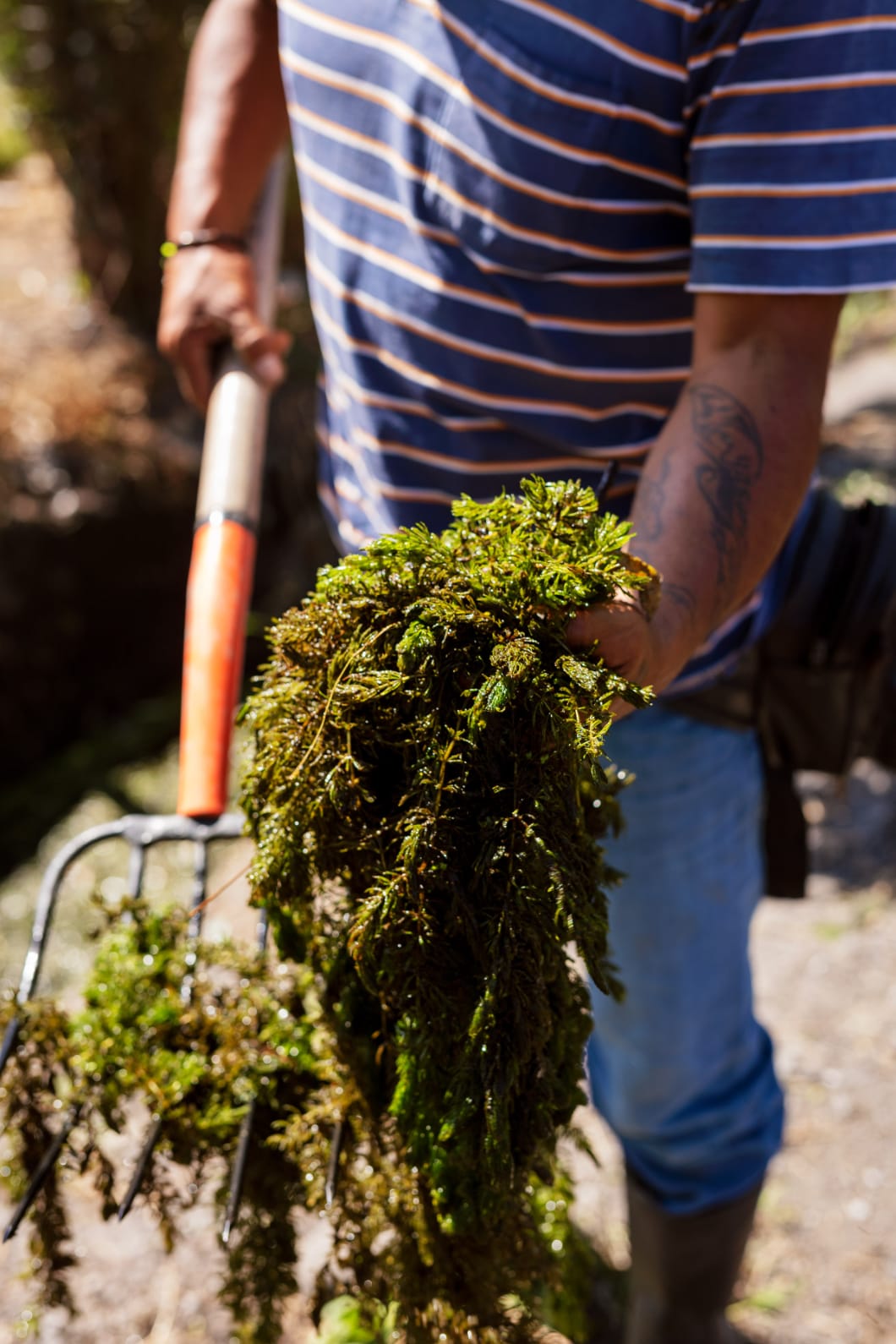
“They’re really proud of being born and being raised here in Xochimilco,” explains Rodrigo. “They are really proud as well of the knowledge their elders have transmitted to them as a collective.”
“They’re getting the whole community involved to share the skills, to recover the ancient techniques, to recover ancient seeds with the aim of spreading the word to the city the importance and the relevance on preserving our culture, preserving all this ancient knowledge — and it’s a key to preserve nature, our traditional way of life.”
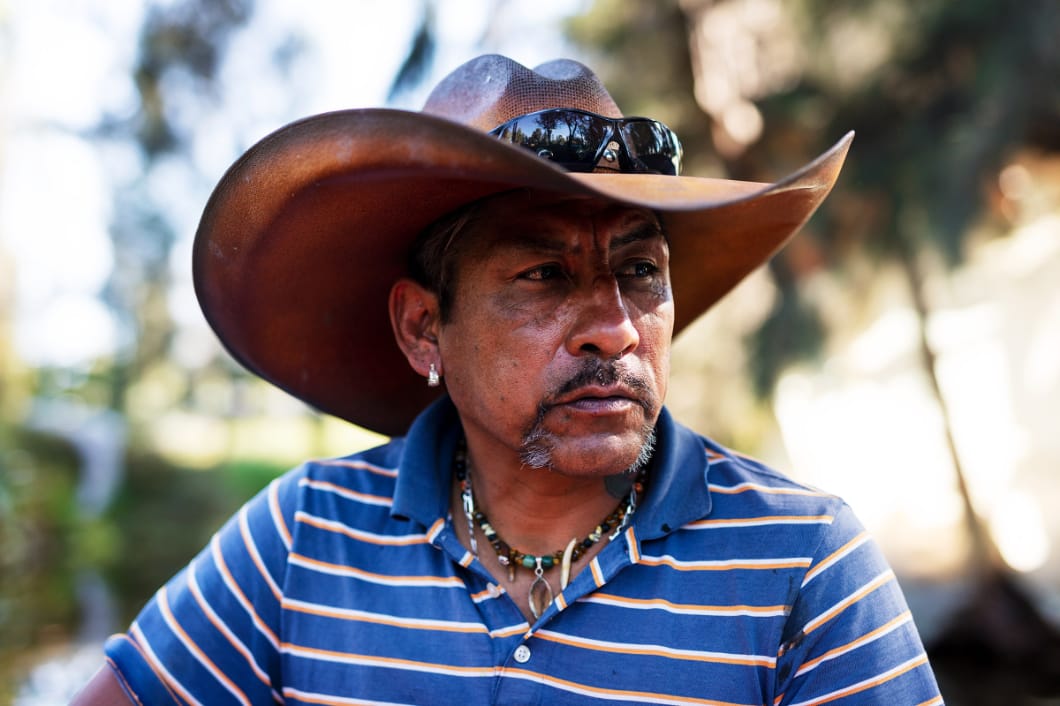
An experience with Ruta Origen means that locals and international visitors alike can help support positive social and environmental impact on marginalized communities while helping preserve ancient traditions.
“So what we try to do is to create a connection. To create a social and environmental impact and try to transform the tourism in Mexico,” says Gerardo.
“To create real awareness about the processes and about the cultures and know what is needed for you to have a cup of coffee or a cup of mezcal or a chocolate. We are setting all the conditions for the people and the travellers to realize what we are trying to share.”
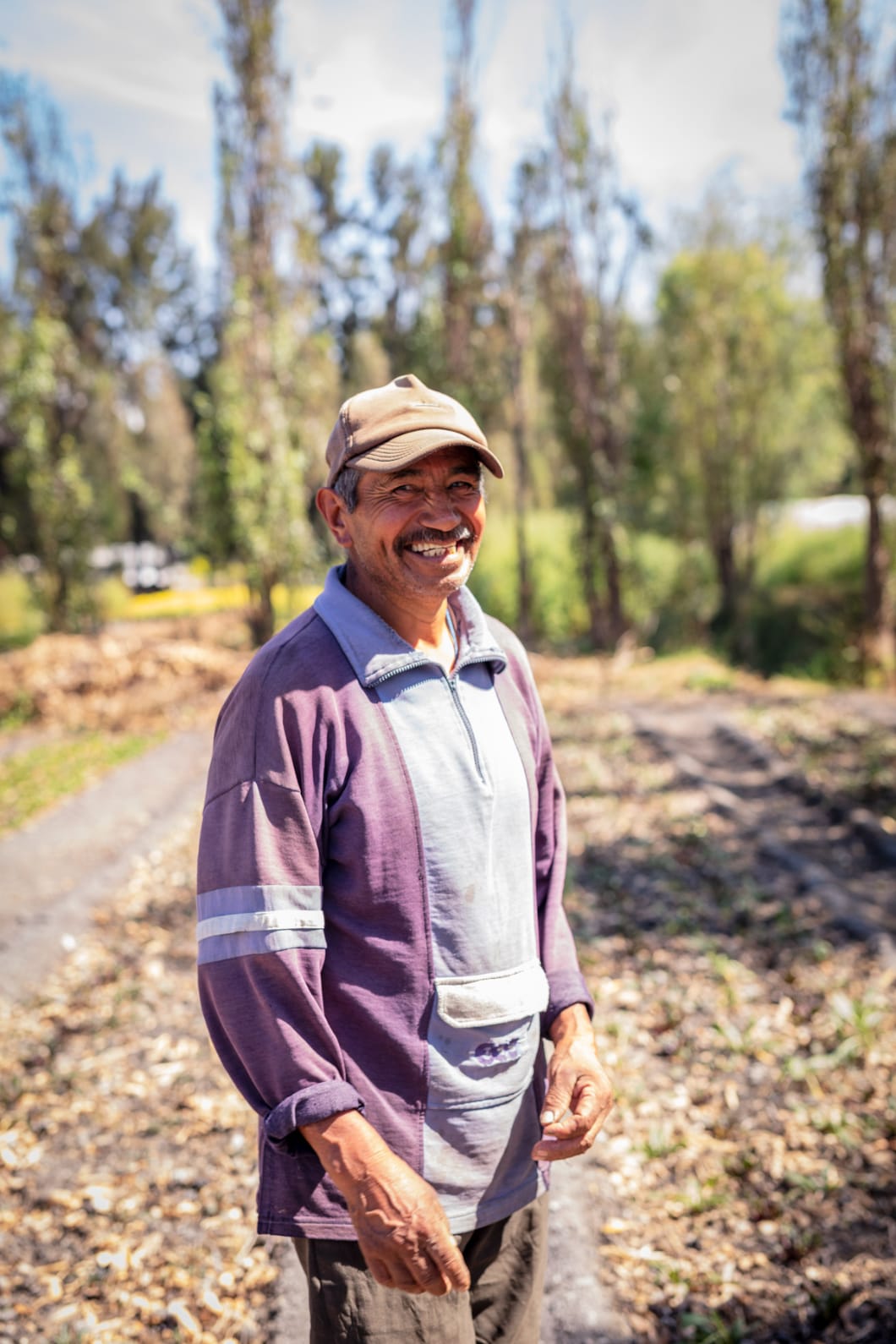
As we finished our day with Don Nicho and his collective, the tranquillity and beauty of the chinampas led me to feel more connected and appreciative of this unique environment. He is working hard to transform all the challenges within his community into solutions that are vibrant and prosperous for everyone. It’s hard work, but his determination and early results show how allies like Ruta Origen bring more awareness and support for his goals.
It was magic hour as we said our goodbyes, the sun trickled down through the trees and the sounds of families gathering for meals provided a soft comforting hum. It was a long day, but our small crew felt inspired by all we had learned and grateful for the chance to connect with Don Nicho.










